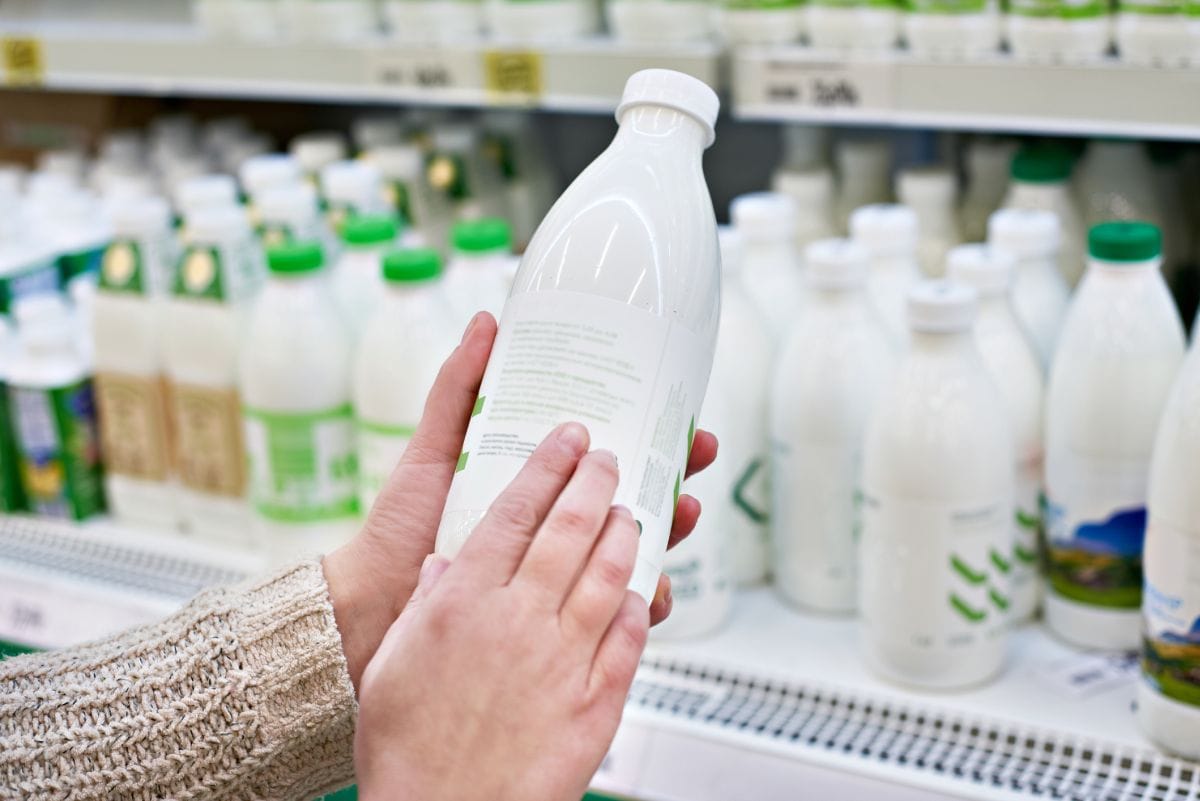There are many types of milk available on the market these days, but not all of them are created equal.
Some milks are healthier than others, and it can be tough to figure out what is the healthiest milk for you.
Cow milk has been a staple of the human diet for thousands of years, but in recent years, plant-based milks have become more and more popular.
So, which one is best for you?

Types of Milk
Many different types of milk are available on the market today, including cow milk and non-dairy milks, such as almond milk, soy milk, and rice milk. Cow milk and plant-based milk both have their pros and cons, so it can be tough to decide which one is right for you.
Cow milk is a popular choice for many people as it contains high levels of nutrients like calcium and protein which are essential for good health. But some people may not be able to consume cow milk due to allergies or dietary restrictions. In these cases, non-dairy milks can serve as good alternatives.
Best Cow Milk
After the age of 2 years, low-fat milk (fat-free or 1%) is the best cow milk option. It provides all the nutrients and protein that whole milk provides but without the extra calories and fat. Low-fat cow milk is high in protein, calcium, vitamin A, vitamin D, B vitamins, and many other vitamins and minerals.
Best Non-Dairy Milk
Each type of non-dairy milk comes with its own unique set of pros and cons, so it can be difficult to know which one is best for you. You must make an informed decision about what type of non-dairy milk is best for your needs and preferences.
Soy milk
One of the most popular kinds of non-dairy milks is soy milk. This kind of milk made from soybeans has the same amount of protein as cow milk but is lower in carbohydrates and higher in fiber. It has a creamy, rich texture that is similar to cow's milk and can be used in many of the same ways.
Almond milk
Almond milk is made from ground almonds. Unsweetened plain almond milk is lower in calories and carbohydrates than cow milk, but it is also low in protein. It is an excellent source of vitamin E. One downside of almond milk is that it tends to separate when heated, making it much more difficult to use in cooking or baking than other types of non-dairy milk. You should not drink almond milk if you have a tree nut allergy.
Rice milk
Rice milk has a sweet and mild flavor. Rice milk is lower in calories and carbohydrates than cow milk and has more fiber. But it is also very low in protein and has fewer nutrients, such as calcium.
Hemp milk
Hemp milk is made from hemp seeds. It has a rich and creamy texture that is similar to cow's milk, but it contains no lactose and is completely vegan and plant-based. Hemp milk is lower in protein than cow milk, but it contains beneficial omega-3 fatty acids. The taste of hemp milk may not appeal to everyone as it can be nutty or grassy depending on how it is processed.
Oat milk
Oat milk is made from ground oats. It has a creamy, rich texture and subtle sweet flavor that makes it a popular choice for use in smoothies, cereals, coffee, and other foods and drinks. Oat milk is higher in carbohydrates and lower in protein than cow milk, but it has more fiber.
Coconut milk
Coconut milk is made from the pulp of coconuts. It has a rich, creamy texture and a mild, sweet flavor that makes it both refreshing and satisfying. Coconut milk is lower in calories, carbohydrates, and protein than cow milk and higher in total fat and saturated fat. It is also lower in most nutrients, including calcium.
FAQs about the Healthiest Milk Choices
One of the best milks for weight loss is fat-free (skim) milk. Fat-free milk is an excellent source of protein, calcium, vitamin D, and other essential nutrients that support good health overall while being lower in calories and fat. Although it does not have as much protein, unsweetened plain almond milk is very low in calories for weight loss or weight maintenance.
Fat-free or low-fat milk is the best milk for protein with 8.44 grams in one cup. The best non-dairy milk for protein is soy milk with 7.99 grams per cup.
Fat-free or skim milk offers many potential health benefits compared to whole milk due to its lower levels of calories and saturated fat. Excess consumption of saturated fat has been linked to higher rates of heart disease and other health problems. And fat-free milk is a good choice if you are concerned about maintaining a healthy weight. Fat-free milk still contains the same amount of protein, carbohydrates, vitamins, and minerals as whole milk.
Bottom Line about Healthiest Milk Choices
At the end of the day, the type of milk that is the healthiest milk for you depends on your individual preferences and dietary needs. Both dairy and non-dairy milks have a variety of benefits depending on the type you choose.
Fat-free cow milk and soy milk contain the most protein and nutrients. Some people may find that they do better with soy milk, while others may prefer to stick with cow’s milk.
It comes down to finding what works for you and your lifestyle.


